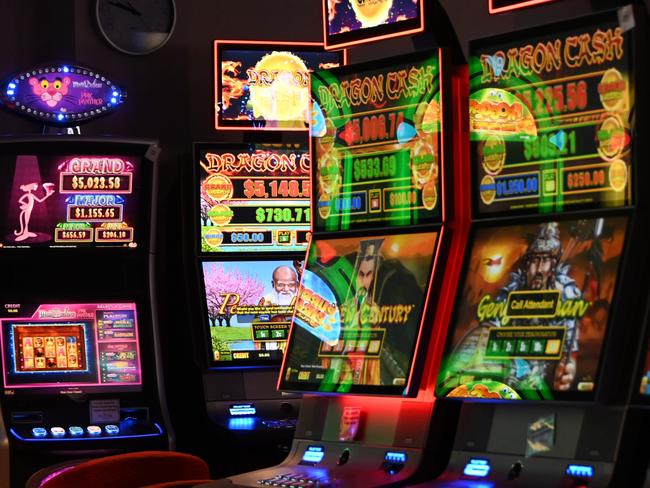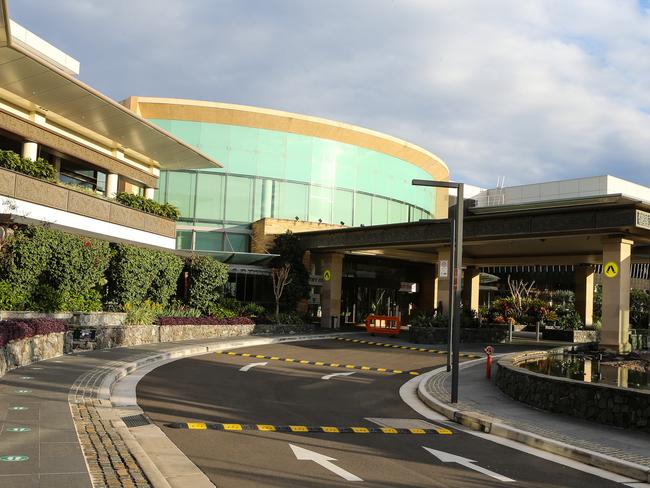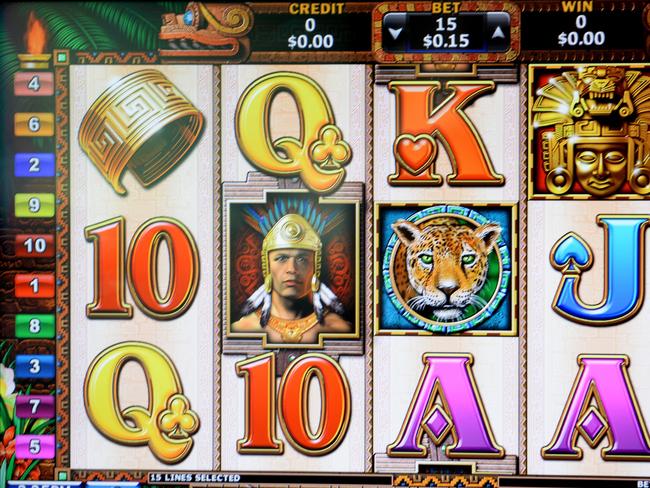Explosive report details money laundering linked to crime groups at 178 NSW venues
Almost 180 pubs and clubs throughout Sydney are being used to launder money worth millions of dollars, a bombshell report has revealed.
NSW
Don't miss out on the headlines from NSW. Followed categories will be added to My News.
An explosive State government report has uncovered “multiple” groups linked to organised crime gangs have been undertaking suspected money laundering activities worth millions of dollars at more than 170 venues across Sydney.
In some cases, professional “facilitators” linked to the organised crime groups were involved, including lawyers, real estate agents and accountants.
The report – leaked to The Sunday Telegraph and stamped “sensitive” – detailed money washing operations totalling $5.5 million over a seven week period.
The report was described by Labor leader Chris Minns as “disturbing”.
At one western Sydney venue in Fairfield, a group of women were found “washing money” through gaming machines before handing their tickets to a man.
At another venue in Merrylands, a man connected to another crime syndicate was filmed “feeding $50 notes” into a gaming machine without gambling, washing a total of $5,500 as two other men operated as “lookouts”.
The groups’ activities were uncovered during a seven week undercover operation initiated after the end of the lockdown, prompting the chairman of the NSW gaming regulator to formally call for a royal commission-style inquiry into poker machine money laundering late last year.

Customer Service Minster Victor Dominello - who had been trying to clean up the industry when he held the liquor and gaming portfolio- is understood to have not only backed the call, but had been keen for an even broader royal commission to take place, which also looked at the influence of pubs and clubs on politicians and government.
Instead, the NSW Crime Commission launched its own inquiry, while the liquor and gaming portfolio was taken off Mr Dominello and handed to Kevin Anderson.
A report warned multiple organised groups “believed to be linked to organised crime” had been detected since venues reopened “with over 132 connected and identified members”.
It found suspected money laundering activities at 178 venues between October 11 and 29 when the investigation was taking place, involving about $5.5 million with Sydney’s “top 10 venues” accounting for more than 40 per cent.
It warned that unless the government continued to make the issue a priority with a proper allocation of resources, it was unlikely that the behaviour would decrease.
“Evidence collected leaves little doubt that electronic gaming machines are being used for large scale money laundering by organised criminal groups in NSW,” it said.
“The number of findings relating to both suspicious transactions and identified individuals is exceeding the amount of current resources available within the regulator to maintain the thorough investigative approach so far.”
Labor leader Mr Minns said it was clear the money laundering uncovered during the investigation period was just the “tip of the iceberg”.
In calling for greater transparency, Mr Minns urged the State government to release the details of its investigations to the public.
“I’m calling on the NSW government to release whatever information they have about inquiries into money laundering in the state. They need to talk to the New South Wales Crime Commission and let the taxpayers in the state understand where those inquiries are up to now.”
The investigation was part of an anti-money laundering project – called “the Project” – between the independent Liquor and Gaming Authority (ILGA) – represented by NSW Liquor & Gaming (L & G), the NSW Crime Commission (NSWCC) and the Australian Criminal Intelligence Commission (ACIC).
The group had been investigating money laundering activities since late 2020, but agreed to undertake a special seven week operation in anticipating of the “substantial cash flow” that might occur with the end of the lockdown.
UNDERCOVER
Multiple teams of investigators were assembled in preparation for the blitz who would collect evidence of suspected money laundering based on “intelligence-led analytics” and behaviour.
The teams inspected thousands of gaming machine transactions, including roulette machines.
Each week, transactions from the previous week were reviewed with those deemed suspicious prioritised into high, medium and low categories.

The investigators then attended the venues, identified the machines before requesting footage of any CCTV cameras nearby.
A review of the footage was undertaken to confirm suspected money laundering behaviour while also identifying the individuals involved.
The information was then passed on to the NSWCC and the NSW Police Force (NSWPF).
TOP LGAs
The report identified suspected money laundering activities at Canterbury Leagues Club where 344 suspicious transactions were detected.
Bankstown Sports Club followed with 273, Mt Pritchard & District Community Club with 183, EBP RSL with 147 and Mekong Mounties Group with 133.
The team identified 149 suspicious transactions at Canterbury Hurlstone Park RSL Club, 107 at the Royal Exchange Hotel, 98 at Smithfield RSL, 166 at St Johns Park Bowling Club and 90 and Markets Hotel.
Across local governments areas, Canterbury-Bankstown topped the list with 1116 suspicious transactions totalling just over $1.4 million, followed by Fairfield City Council with 1023 amounting to just under $1.3 million, Cumberland Council with 255 ($366,000), Inner West Council with 217 ($333,000) and Georges River Council with 208 ($196,000).

“Since reopening, the Project has identified multiple, distinct organised groups undertaking suspicious activities at venues across Metropolitan Sydney,” the report said.
“The presence of these groups demonstrates a long-term, high volume rate of potential money laundering across NSW.
“The nature of the AUSTRAC and police reports connected to some syndicate members and their associates suggests that the predicate offences may be linked to broader organised crime activities.”
UNWASHED MONEY
The report detailed a crime syndicate involving a couple and an associate in Fairfield who – together with other members of the groups – are believed to have laundered “tens of millions”.
During the investigation, the syndicate was linked to $45,000 of suspicious transactions – with CCTV footage revealed “hierarchical behaviour” with each member playing a role in playing and feeding the machines and handling and collecting the cash.
At one stage, a bag was placed over the screen of a machine so passers-by could not see play information.
The report said the woman had been previously “flagged” by another venue for chasing over $5000 worth of tickets with no turnover.
Around 20 people across 23 venues were believed to be connected to this syndicate, which had been operating “since at least 2014”, the report said.
Over in Cabramatta, the report detailed the “high level of organisation” of another syndicate with seven members.
“One member hands the unwashed money to a group of females who are playing the machines,” the report said.
“The females feed the machines and then hand the washed money/tickets to a different member of the group who then hands the money to a male who appears to be co-ordinating this syndicate.”
The investigation also uncovered a separate syndicate operating in Merrylands where a man looks to be washing money through machines as two others operating as “lookouts”.
CCTV footage later captures the man retrieving a bag from his car which he puts into another car that is driven away.
“This syndicate has been referred to the NSWPF and NSWCC,” the report said.
“The NSWCC has indicated links to organised crime.”
The report warned the scale of money laundering was likely to be higher than uncovered given only “zero loss” transactions were examined rather than “percentage loss” where some of the money was legitimately gambled to hide the fact it was being washed.
Given evidence of the “presence of professional facilitators” linked to organised crime groups “including lawyers, real estate agents and accounts” along with involvement with the “NSW construction sector”, the report recommended “relationship buildings” with other agencies such as NSW Fair Trading.





